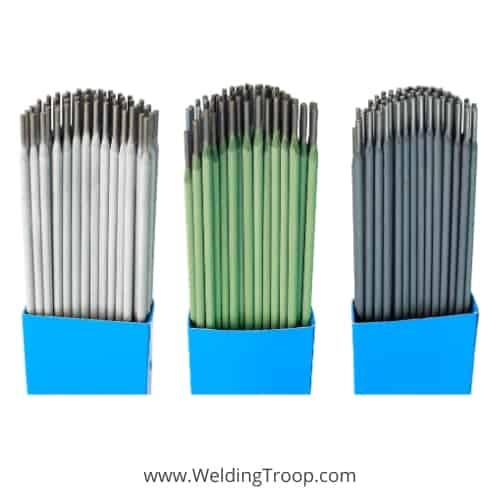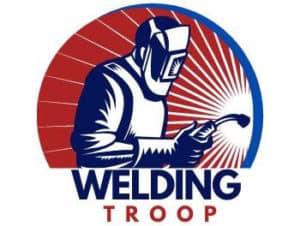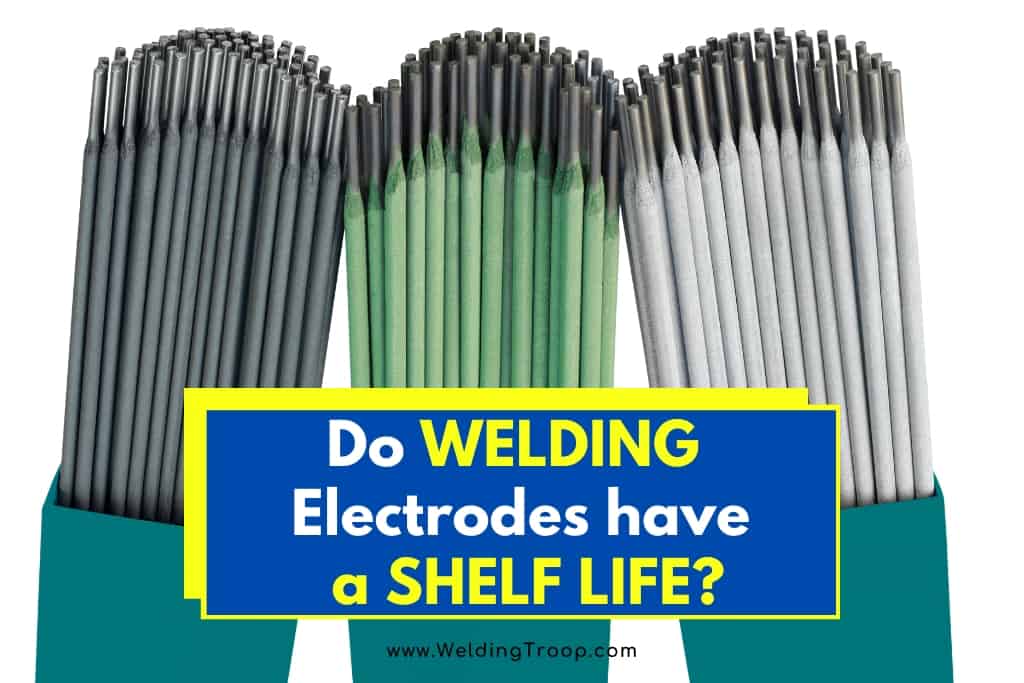When using welding equipment, you want to make sure it will perform, especially under the dangerous conditions that allow the trade to take place. Not only should the equipment be of quality, but it must be new enough if there is an opportunity for items to expire or lose effectiveness over time.
Do welding electrodes have a shelf life or do rods go bad? Yes, welding rods can go bad depending on the model of rod that is used and the conditions they are kept in. Welding rods hold a shelf life around 2-3 years in ideal conditions. Moisture has a negative impact on the shelf life of many rods as well as poor temperature conditions. As rods age, they can also crack or become damaged.
We will discuss the various types of rods and the conditions they must be kept in to maximize the shelf life of your welding electrodes. Electrode rods will expire over extended periods of time, but there are important steps you can take to make them last as long as possible. This will help you to get the most value out of your welding equipment.
Table of Contents
Do Welding Rods Expire?
Welding rods are the materials that act as filler upon the workpieces you want to be molded together. They help conduct electricity to form the gas pool that allows the pieces of metal to metal together. Welding rods do expire depending on the type of electrodes that are being used. These differences in electrodes refer to their application and welding characteristics.
What Causes Welding Rods to Expire
The most common factor that leads to the expiration of a welding rod is in contact with moisture. Keeping welding rods sealed and dry is the most effective way to ensure that welding rods can be used for extended periods of time. Some welding rods will expire more quickly than others when they come in contact with humidity.
These are the conditions you must control in order to prevent your welding rods from expiring:
- Moisture and humidity: Try keeping your welding rods in a sealed container once they have been opened and in a dry location. The moisture breaks down the coating on the rod and may result in poor welds. Low-hydrogen electrodes are particularly prone to damage with humidity.
- Temperature: Electrodes should be kept in warmer temperatures to remain dry and reusable if the packaging has been opened. Welding rods are often kept in a rod oven or cabinets that remain over 100 degrees Fahrenheit. If rods do get wet, you can amp up these ovens even hotter to ‘re-dry’ them.
Wet 7018 vs Dry 7018 with a Dry Rod Oven >> Check the video below
- Age: While age has less of an impact than the two factors mentioned above, the longer rods are held, the more likely they are to break or underperform. They may also be more susceptible to moisture or the cold when stored over a longer period of time.
Preventing the rods of expiring can be accomplished by providing a warm and dry environment for storage. Only take out as many rods as you’ll need from the packaging and try to seal the remaining rods quickly and securely so that they will maintain a longer shelf life. There is a direct correlation between humidity and temperature to the shelf life of an electrode.
Types of Welding Rods and Their Expiration
There is a wide range of electrodes, all having their own characteristics in terms of usage and their ability to work over longer periods of time. As a general rule, welding rods that are kept in ideal conditions should last upwards of 3 years. The life of an electrode will vary by the material as well as manufacturer, but most recommend switching for new ones after five years.
Welding rods can be broken down into consumable and non-consumable electrodes. Consumable electrodes are ones that melt the rod and become filler as the welding process occurs.
Non-consumables do not melt and act as an electrical conductor to mold the two workpieces together, or a separate filler is needed.

Non-consumable electrodes do not typically have a shelf-life as there is no coating or material that can be impacted by outside conditions. They can be slightly eroded throughout the process of welding, which will lead to replacement once burnt down. Consumable electrodes come in a variety of types and are most impacted by environmental factors that impact expiration.
Common welding rods and their shelf life:
- Low-hydrogen electrodes: These electrodes are aimed at preventing cracking due to hydrogen during the welding process. Electrode codes for these include EXX15, EXX16, and EXX18. E7018 is a very popular electrode that is very susceptible to damage by moisture. In sealed containers, they can last upwards of 5 years. If left in moist environments, they can expire in as little as six months.
- Metal-cored electrodes: These are less susceptible to moisture damage but still should be stored and sealed to prevent outside conditions from impacting the electrode. They have a shelf life of 5 years when sealed and one year in another container.
- Flux-cored electrodes: These are filler metals that have an outer metal layer and a center made of powdered materials. Shelf life is five years in a sealed container and two years when stored elsewhere (still in dry and warm conditions).
7018 rods are one of the most common rods used (especially for carbon steel) but also have the shortest shelf life due to moisture concerns. 6013 rods are also commonly used for clean finishes and difficult welding surfaces. 6010 and 6011 are fast-drying, which is often used for welding pipes. You should keep all in warm and dry locations, especially for your 7018, as it is a low-hydrogen electrode.
Related article: Different Types of Welding Rods and Their Uses
What Types of Welding Use Electrodes?
Electrodes will be a key material being used in welding as they provide the electrical conductivity to metal and forge your metal together. As we have mentioned above, there are two types of electrodes: consumable and non-consumable. Various types of welding will produce unique results depending on your project and the materials being used.
These are the different welding methods and the electrodes they use:
- Shielded Metal Arc Welding: In this method, you are using a consumable electrode that will allow the melted electrode to serve as the formation of the weld. Flux core electrodes may be used to strengthen the weld.
- Gas Metal Arc Welding: Instead of the electrode itself shielding the weld from oxygen in the atmosphere, gas creates this shield. Consumable electrodes are still used, and this is a welding technique that is versatile and used on a wide variety of metals.
- Flux Cored Arc Welding: This is a combination of the two methods mentioned above, where you use a flux core and have a continuous wire in the welding gun. No gas is needed, and you can use a wide variety of electrodes.
- Gas Tungsten Arc Welding: Unlike the other methods, non-consumable electrodes are used in TIG welding. Gas is used as a shield from oxygen, and it is one of the more difficult welding practices to master.
The Shelf Life of Welding Electrodes
While all electrodes should be replaced after five years, most electrodes kept in great condition should last well over 2-3 years (depending on the manufacturer specifications). The most important thing to remember when storing electrodes is to keep them dry and warm if you want to extend the usability of the welding rods.
Consider storing rods in a rod oven or only unpackaging the electrodes that you know you will be using to save the seal on rods needed at a later date. The condition of the rods will have a great impact on the quality of the weld, which you will want to be strong and clean!
Recommended Reading
Does Flux Core Wire Go Bad | Tips for Preventing the Effects of Moisture Contamination
Here are some of my favorite tools & equipment´s
Thank you for reading this article. I hope it helps you find the most recent and accurate information for your welding project. Here are some tools that I use daily and hope you´ll also find helpful.
There are affiliate links, so if you do decide to use any of them, I´ll earn a small commission. But in all honesty, these are the exact tools that I use and recommend to everyone, even my own family. (NO CRAP)
To see all my of most up-to-date recommendations, check out this resource that I made for you!


